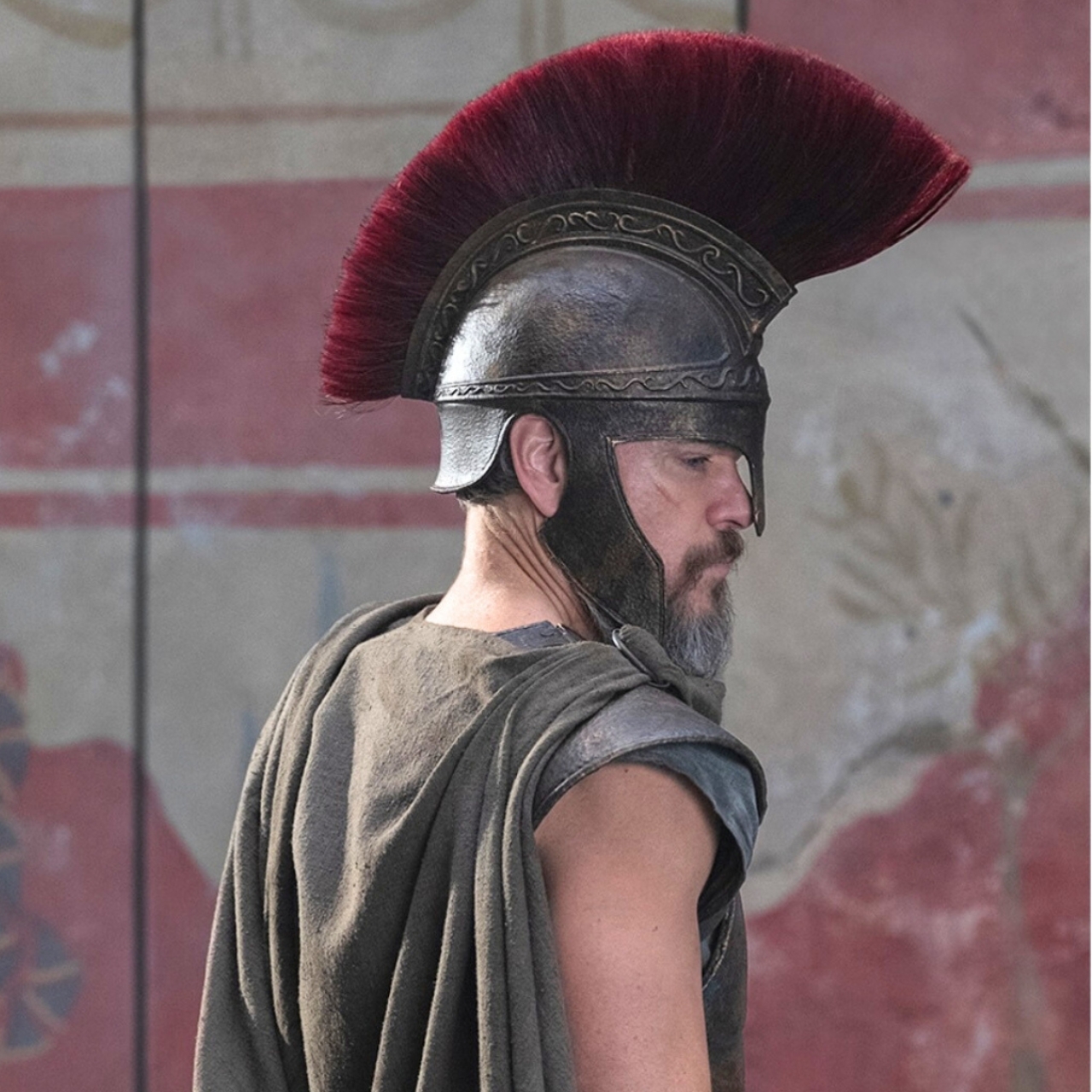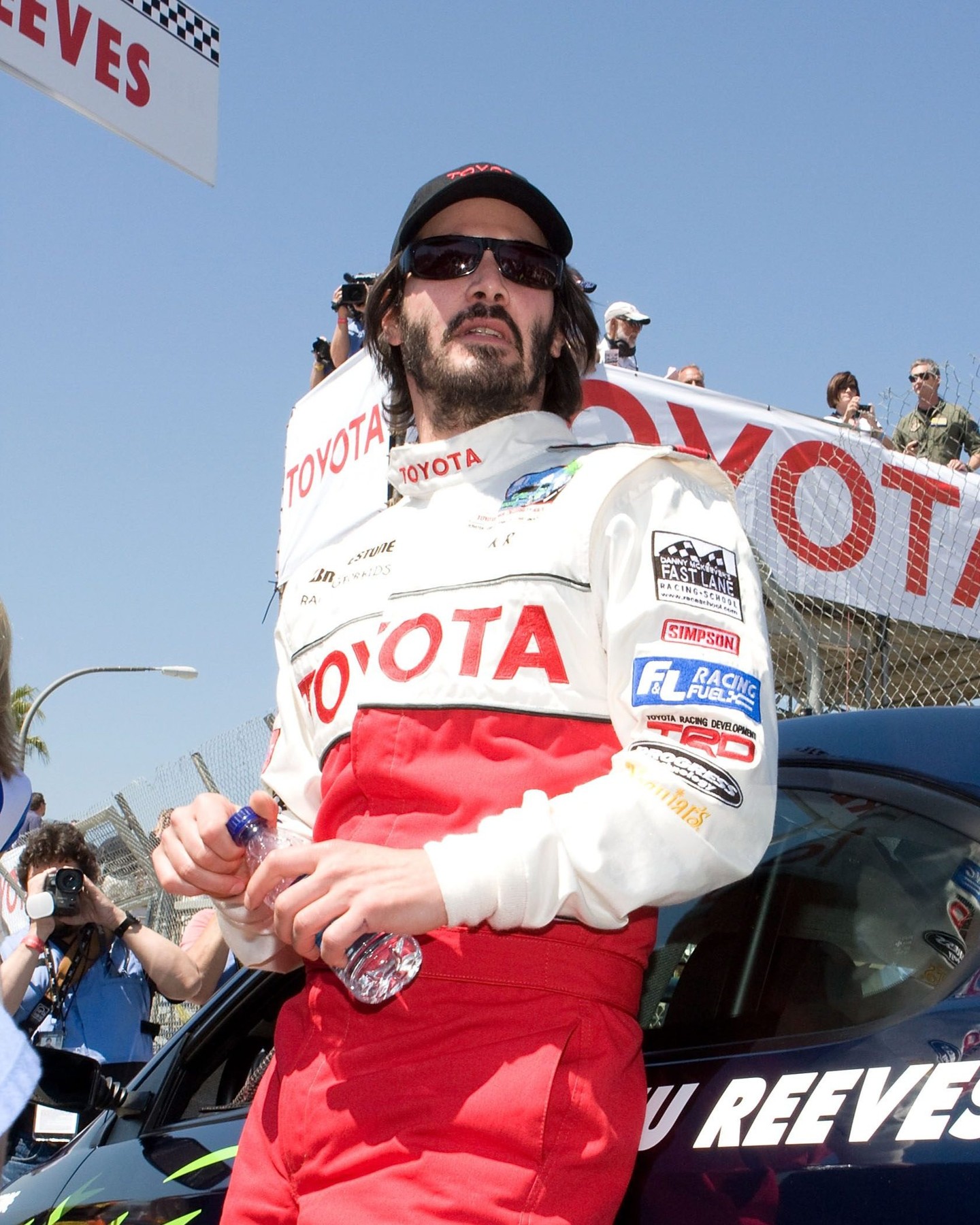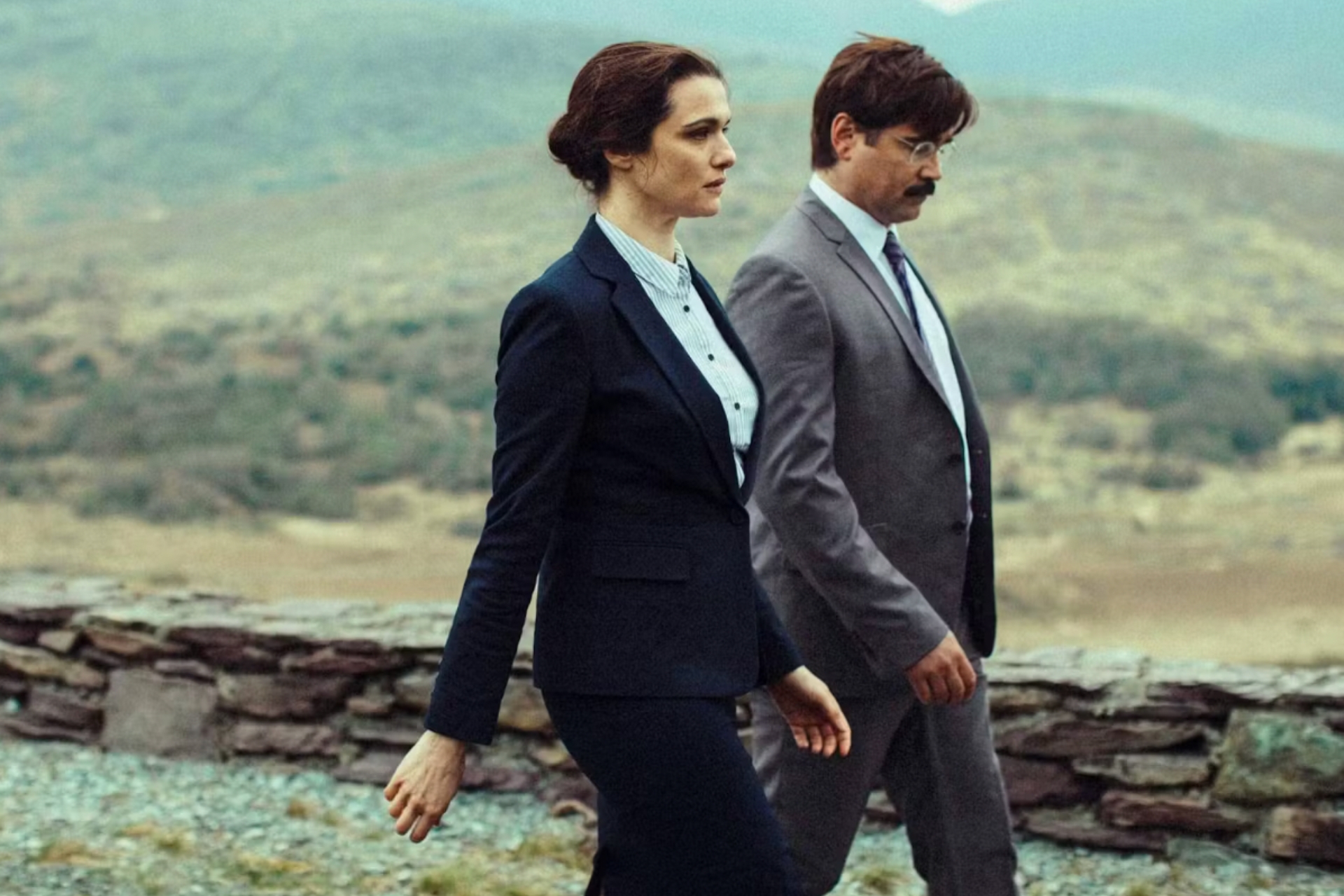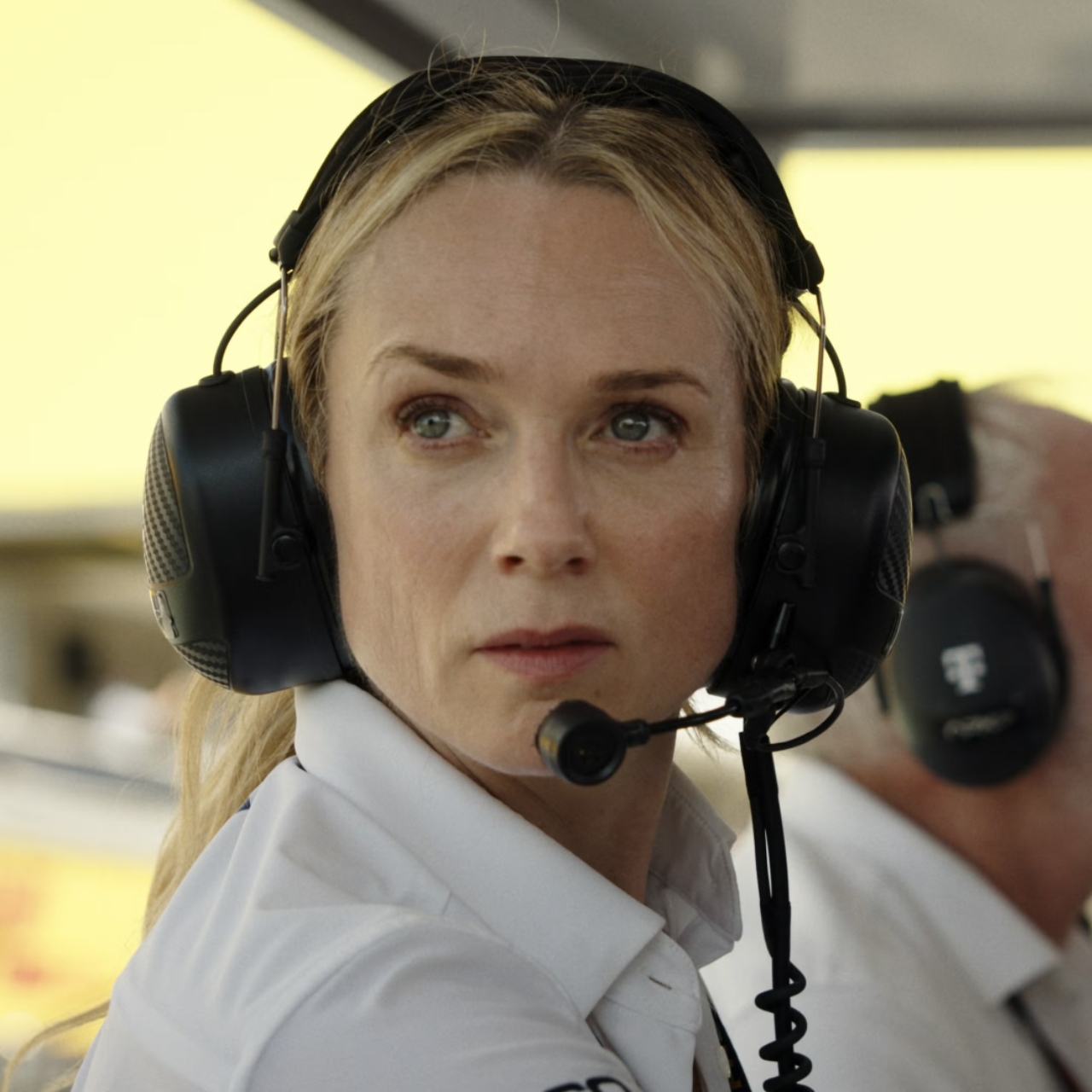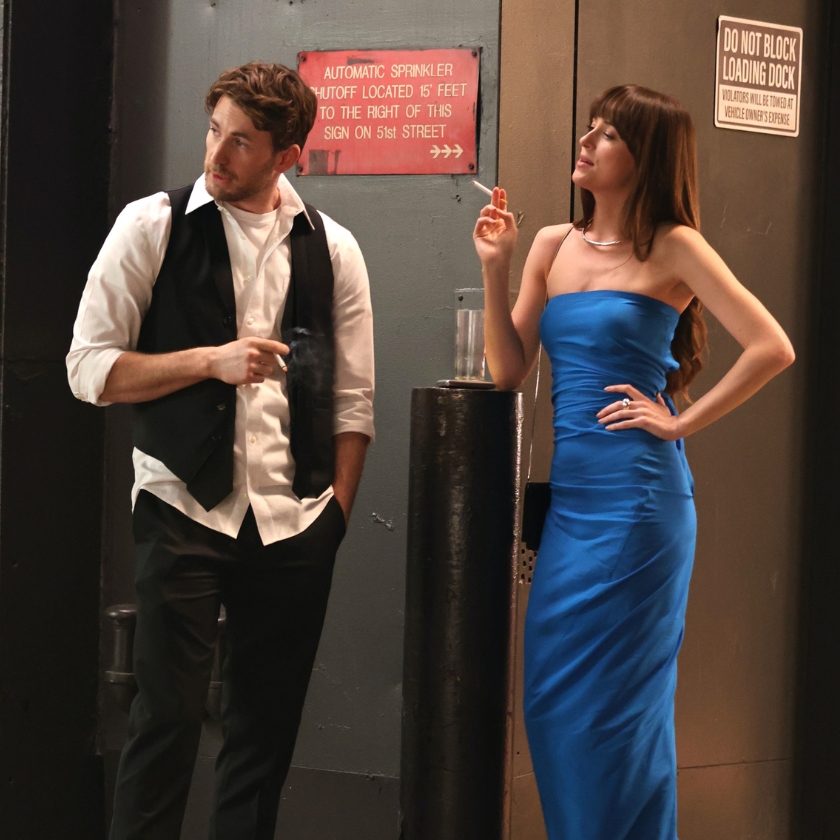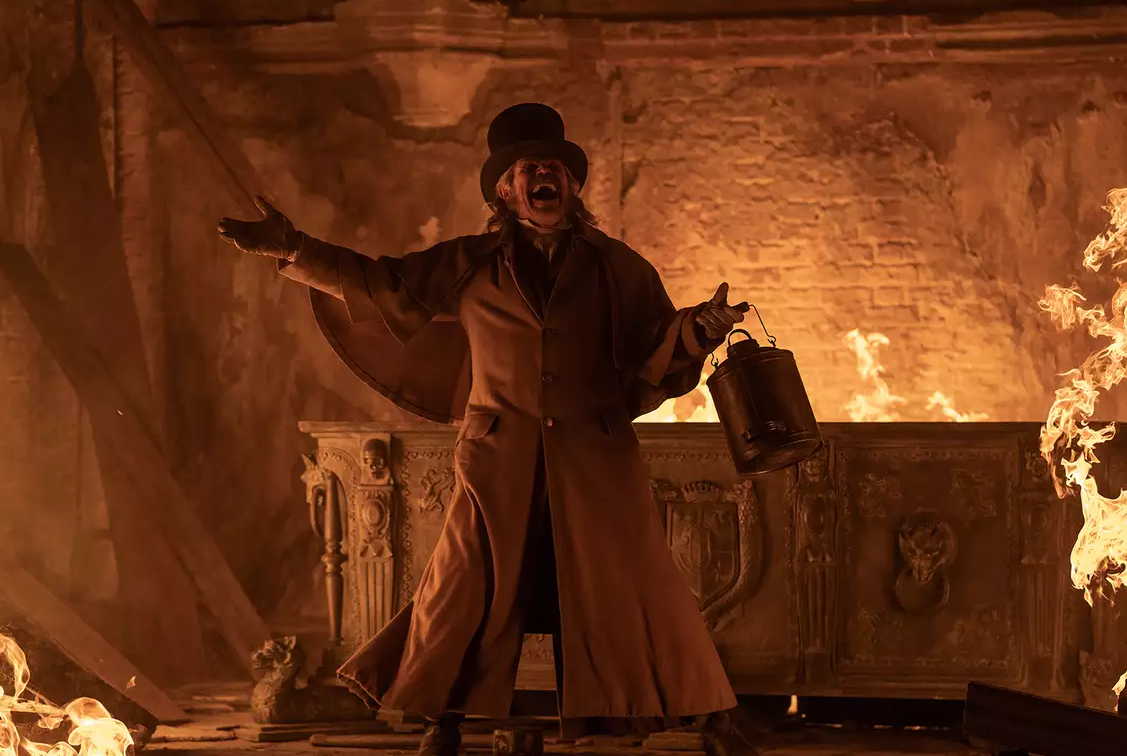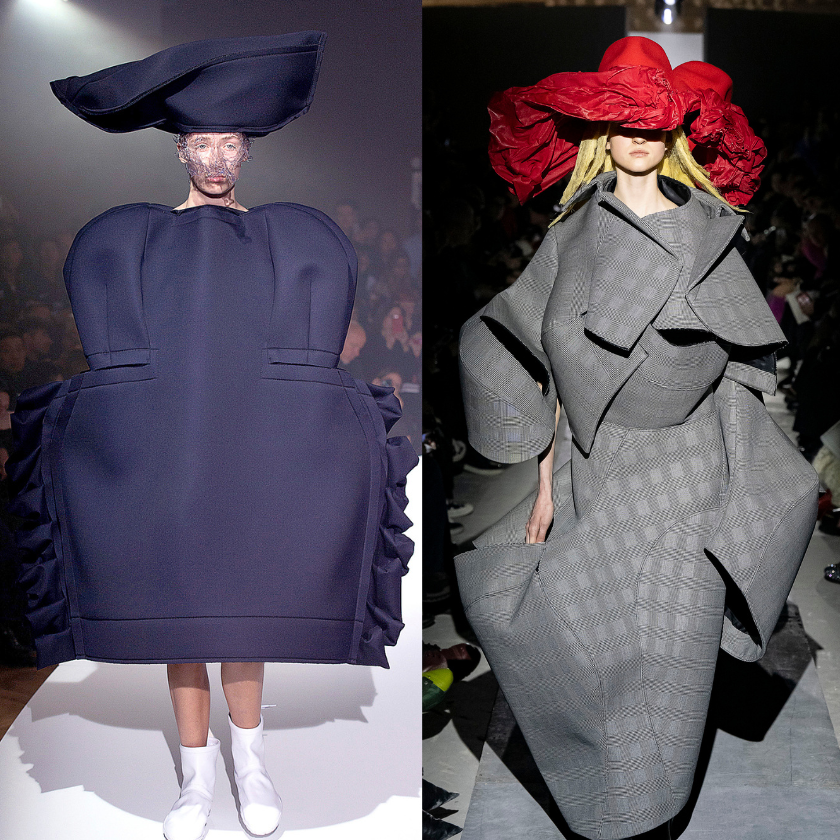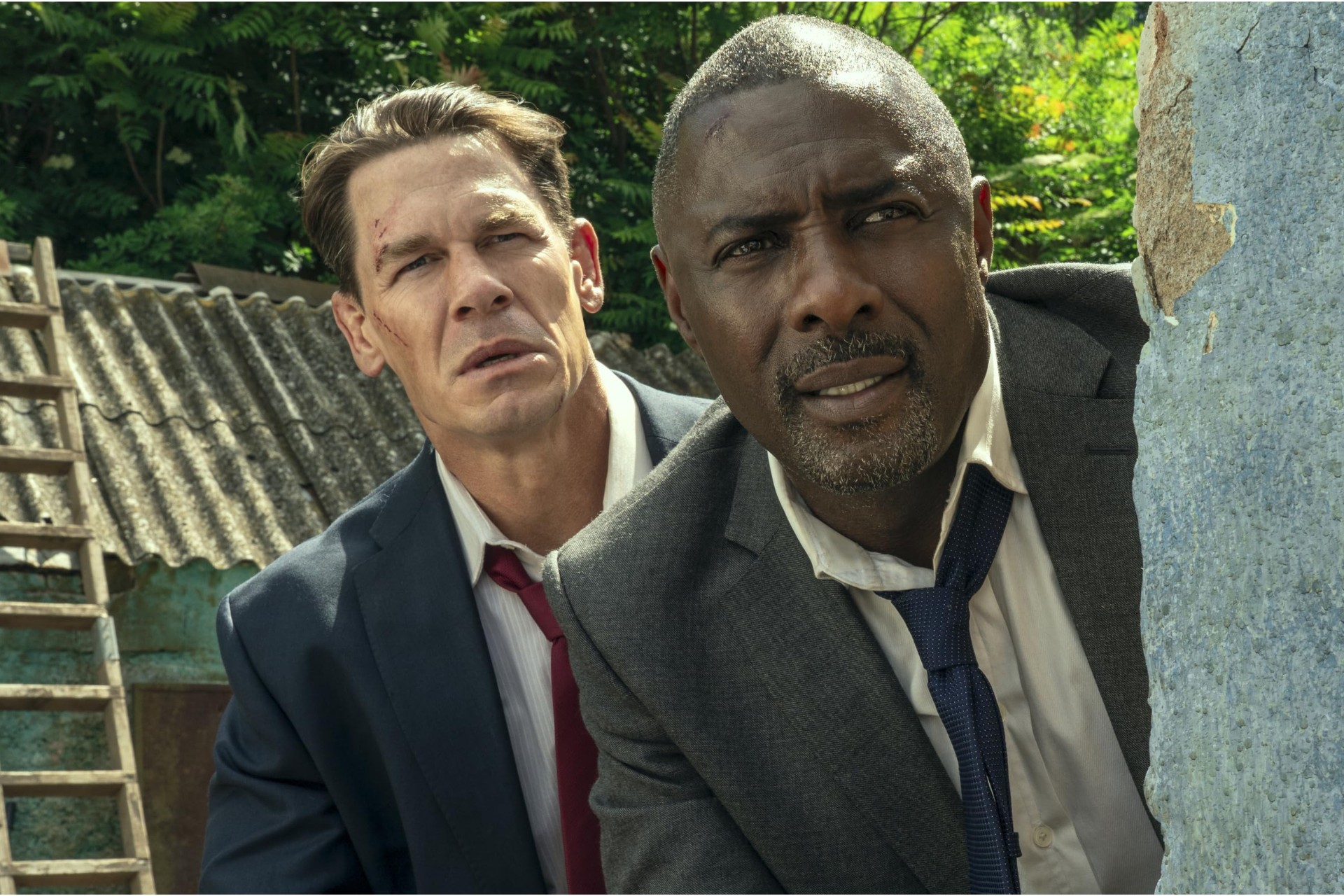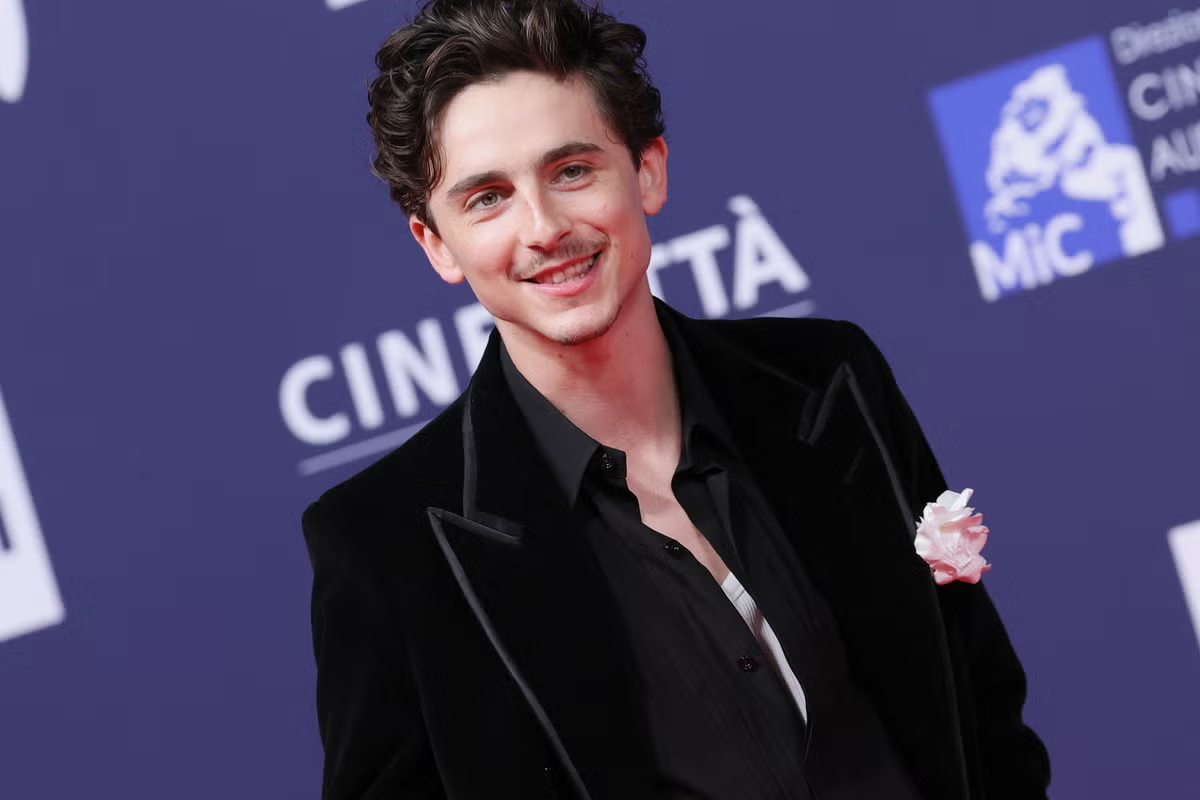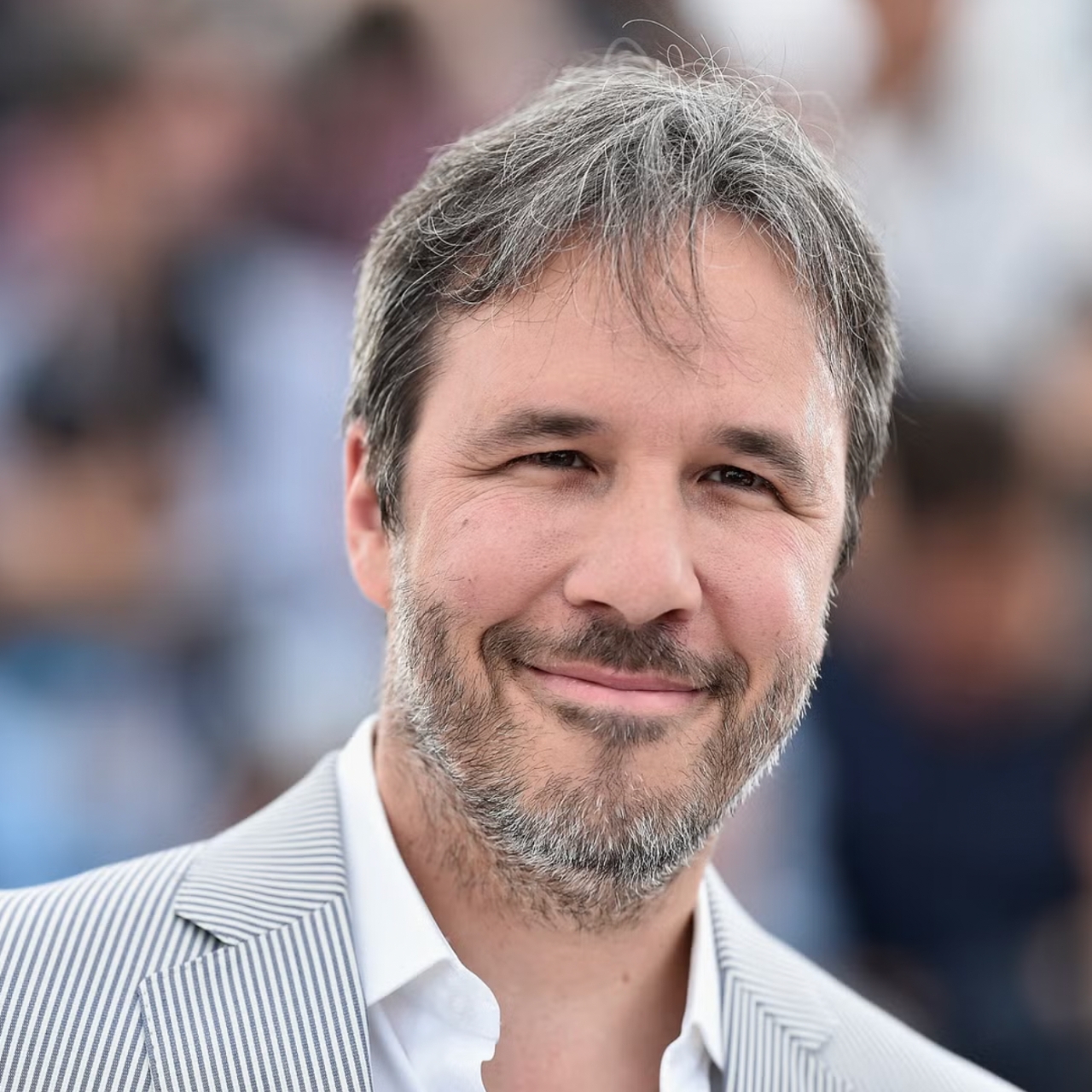Don't put Fontaines D.C. in a box
The Irish rock band has gone from cult favourite to global phenomenon, while dealing with – and defying – the expectations that come with this kind of success. In between playing sold-out shows across Australia, we catch up with the five-piece to chat fashion, 'Romance' and the importance of dreaming
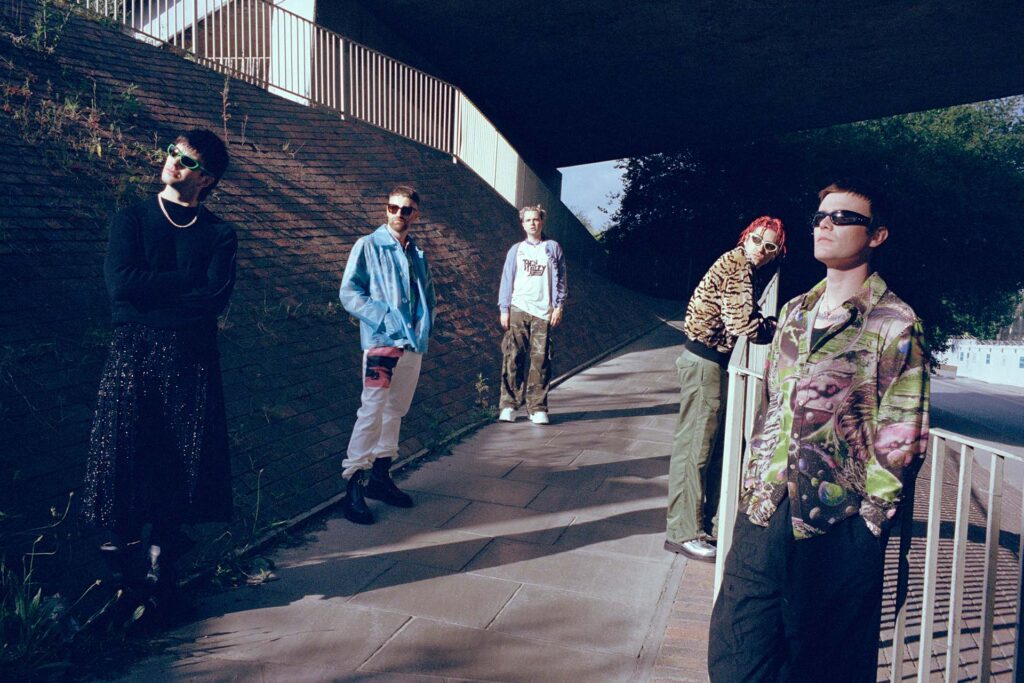
A CROWD OF thousands – including what must be the vast majority of Sydney’s Irish population – is gathered at the steps of the Opera House, shouting back the lyrics to ‘Romance’, the title track off Fontaines D.C.’s most recent album. It’s raining, but no one seems to notice; everyone is swept up in the continuum created by Grian Chatten, Conor Curley, Conor Deegan III (Deego, always), Tom Coll and Carlos O’Connell, four mates who met while attending music college in Dublin, and are now one of the most popular rock bands in the world.
So, how does that feel? A few weeks before they touched down in Australia to play a string of sold-out shows and festivals, we put that question to bassist Deego, and guitarist O’Connell.
“I don’t know. I’m not feeling that so much, I’m just here in my socks and there’s a big hole in one of them,” says O’Connell. Deego adds: “I’m more excited because I just believe in the songs a lot to be honest. And I did think we had good songs when we started off as well, but I believe it really deeply now.”
That question: how does it feel to be in the world’s coolest band? Has morphed into more of a statement, as the band transcends their scrappy punk rock origins to arrive at the upper echelons of rock and roll. They just took home Best International Group at the Brit Awards, while losing out to The Rolling Stones (The Rolling Stones!) at the 2025 Grammys. They were nominated for Best Rock Album for Romance.
“You can’t really say anything to that, right? They’re the original rock and roll band,” laughs O’Connell. “They pushed the idea of rock and roll to the world . . . I mean there’s obviously so many other bands, but they’re the complete staple of what the fantasy behind rock and roll is.” Still, to be named alongside a band like the Stones – a group that has been releasing music for over sixty years – highlights just how well Fontaines have managed to produce what few bands have tried and failed to: something that feels like it’s been around forever, and like nothing you’ve ever heard before.
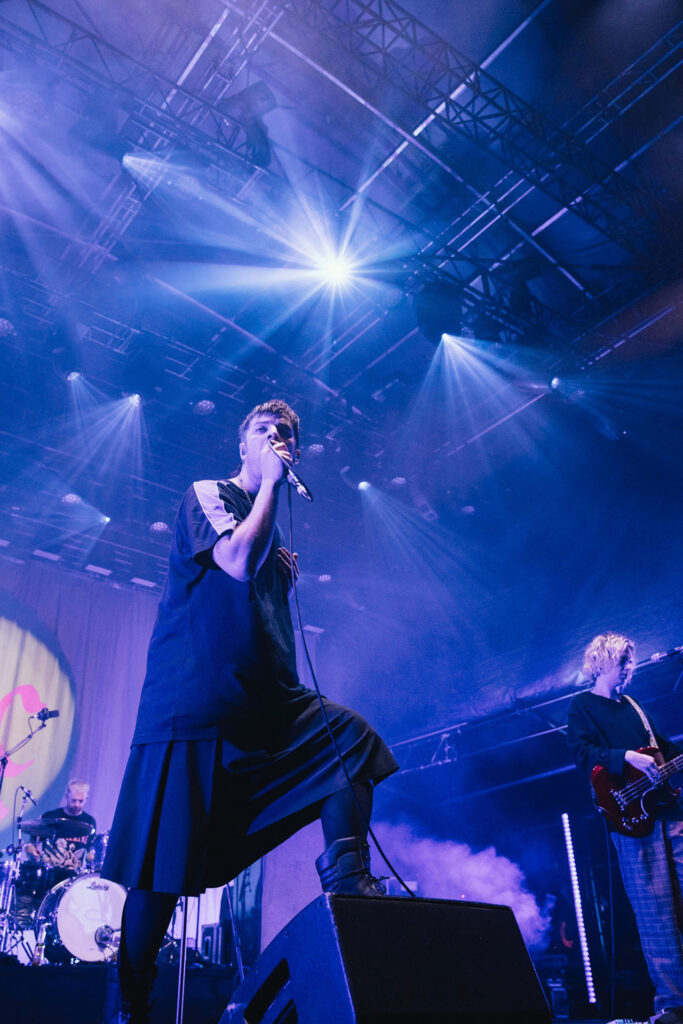
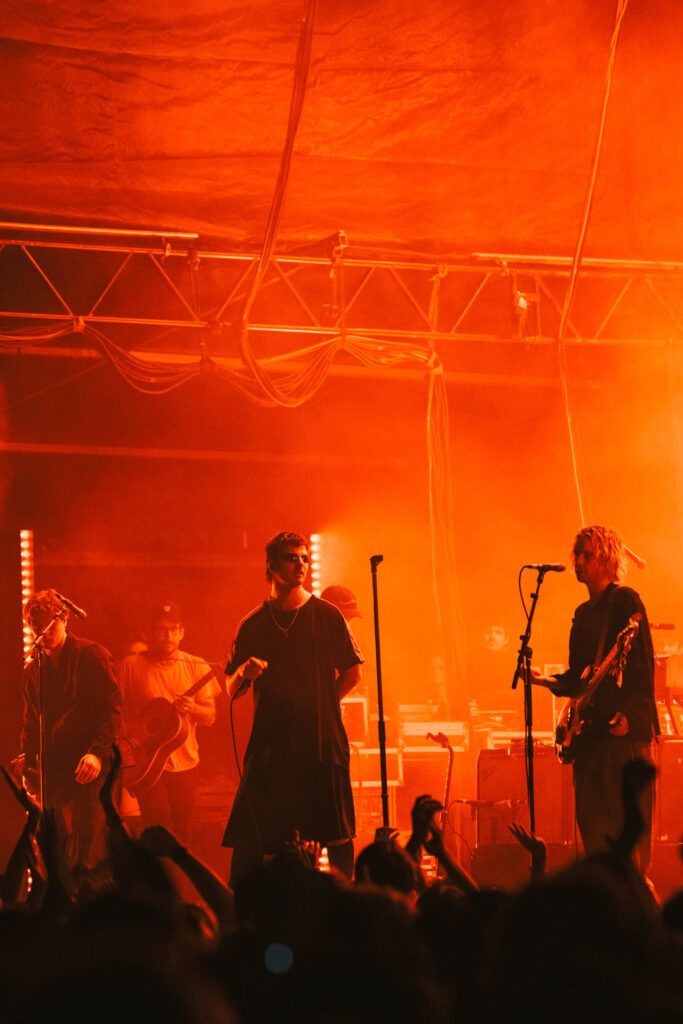
While their previous three albums have been lauded for capturing the frustrated grit of the anti-establishment – a texture the music industry is lacking in this era of sanitised pop – Romance feels like it was put together by the breeze. Of course, early heads that gravitated towards the band’s DIY production will always question a bigger, slicker sound, but if anything, Romance is proof again that this is a band unafraid of pushing against whatever box anyone is determined to put them in, which is the reason those fans fell in love with them in the first place.
Fontaines D.C. – the D.C. stands for Dublin City – have also risen through the ranks of rock and roll at a time when Irish art has experienced something of a resurgence on the global stage. Sally Rooney, Paul Mescal, Saoirse Ronan, Kneecap and Cillian Murphy – all Irish – are some of the most famous names in the world right now. Rather than riding the wave, the band has played an integral role in building it. “Everyone’s used to things coming from the same place all the time,” says O’Connell, nodding to America and Englands influence over culture, and music in particular. “Come here. We’re also good. [Ireland] always has been.”
The Irish distinction is impossible not to make when talking about Fontaines D.C., something bands from smaller populations like Australia and New Zealand also experience when they gain wider recognition overseas. “I think it was a good thing for us at first because we were being categorised as a part of a UK movement of music, [but] it was really important to say that we are an Irish band,” observes Deego, the most softly spoken of the group. “Our music, while musically similar [to British rock], was built on something else, at least lyrically. But also there were ideological differences there.”
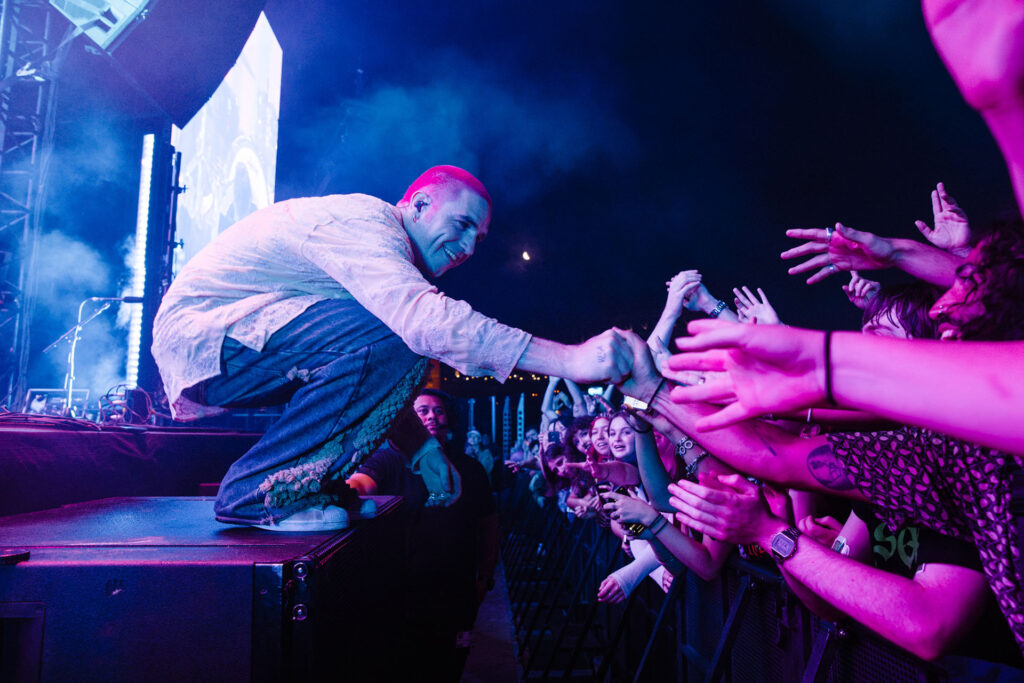
Again, as the band evolves, that focus on Irishness feels softer, a shift you can sense on Romance. “I think Irishness in particular is a very interesting topic for thought and for talking about in music. But now, as we’ve gone on with our albums, it has become something that we are not necessarily trying to escape from, but want to explore writing other themes,” adds the bassist.
With the release of Romance, which includes the silver platinum single ‘Starburster’, and ‘Favourite’, which hit number three on Billboard’s Alternative Airplay charts, comes an aesthetic shift, spearheaded by O’Connell. At their Sydney show, the guys were decked out in pieces by Australian brand Song for the Mute, and given the size of their global fan base, it won’t be long before other brands come knocking.
“I think we all have preconceived ideas of what a band should look like. And if you make a band look like the preconceived idea of that band, then you’re going to just expect the music to sound like what you think it’s going to sound like, and then you get disappointed when it doesn’t,” says O’Connell. “For me, I wanted to make something visual that you actually don’t really know what you’re going to hear because you don’t expect this band to look like that. The aesthetic in itself in the context is confusing enough that it won’t create a prejudgment of the music. You can just allow the music to speak for itself.’
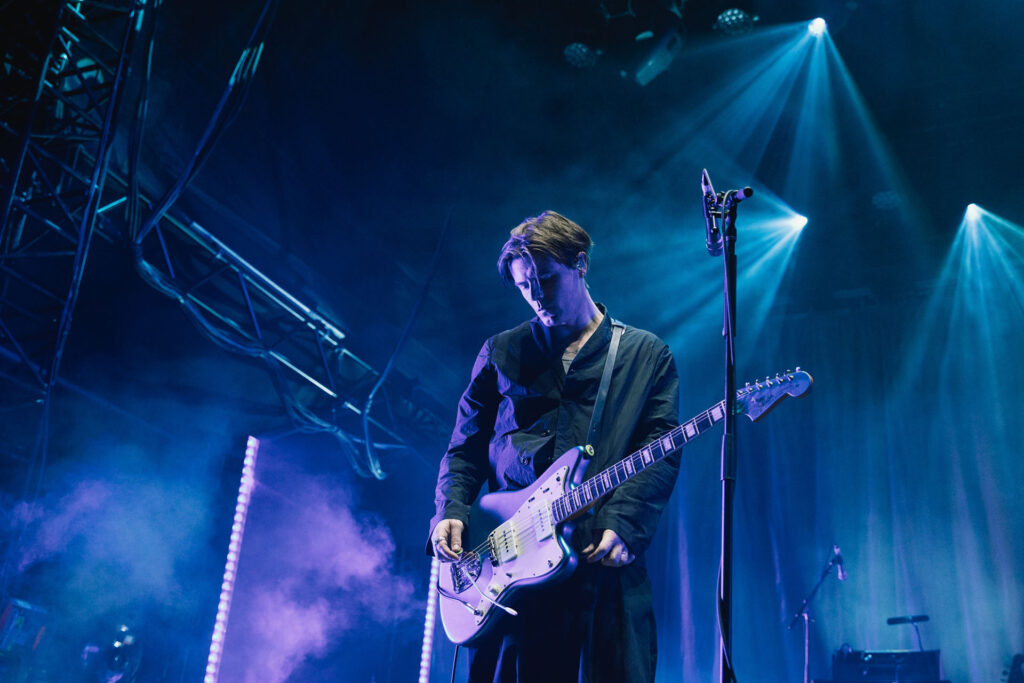
The amalgam of neons, sportswear, and androgynous grunge – not to mention frontman Grian Chatten’s love of skirts – signals a band unafraid of trying things on, and having a bit of fun with it. And if their taste in fashion carries any resemblance to the anti-establishment themes within their music – they’re not afraid to speak up on issues that matter to them, with Chatten proclaiming ‘Free Palestine’ at their Sydney show – it doesn’t feel like this is an image, or sound, or voice Fontaines are trying to manufacture; it’s just who they are. (Any conversation about ‘who Fontaines are’ must also mention their love of literature. Right now, O’Connell is reading The Frolic of the Beasts by Yukio Mishima, while Deego is deep into a collection of short stories by American writer Breece D’J Pancake.)
Fame is a byproduct of pursuing what they love to do, not the goal. And in a world where we have wild access to celebrities but where it always feels like they are playing a certain role, Fontaines D.C. have never felt like they are reading from a script.
To release an album like Romance, to pursue a sound and a look that’s different to what they started with – if anything, that’s the most rock and roll response they could’ve come up with. Inspired by the title of their record and in light of their impressive, unwavering liberty, I ask Carlos if romanticising the world at a time when things are less than dreamy is the most punk thing one can do. He smiles, and lets out a laugh.
“I think the need for romanticising the world is dreaming beyond what is just right in front of you. The world needs a lot of that. Even in the least romantic of places, the world needs dreaming. Like in politics, the world needs people that dream of a better world, not just people that do whatever they do just for votes. You see the state the world is in and you can’t hope for better without dreaming. There needs to be hope. There needs to be more dreaming.”
See more of Esquire’s music coverage:
The universal language of Kneecap
Djo talks his latest album ‘The Crux’ over some Vegemite toast












